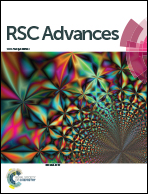Characterization and targeting ability evaluation of cell-penetrating peptide LyP-1 modified alginate-based nanoparticles
Abstract
Doxorubicin hydrochloride (DOX) shows a powerful treatment effect on breast cancer. However, for its indiscriminate distribution after systemic administration, the therapeutic response of DOX will reduce and even result in serious adverse reactions during the long-term administration. To achieve better treatment, in this study we established a non-condensing sodium alginate-based nanoparticle-encapsulated DOX (DOX/NP), the surface of which was modified with cell-penetrating peptide LyP-1 (namely LyP-1-DOX/NP) to attain active targeting towards breast cancer cells. The size of LyP-1-DOX/NP was 138.50 ± 4.65 nm, with a polydispersity index (PDI) of 0.22 ± 0.02, and the zeta potential was 18.60 ± 0.49 mV. The drug loading efficiency (DLE) for the preparation was 91.21 ± 2.01%, with an encapsulation efficiency (EE) of 12.37 ± 0.35%. The nanoparticles exhibited good stability in vitro and slower release trend compared with free DOX in PBS at pH7.4. In vitro cytopharmacodynamics showed that LyP-1-DOX/NP had an excellent anti-breast cancer effect against MDA-MB-231 cells by the MTT test. The uptake amount of LyP-1-DOX/NP by MDA-MB-231 cells was much higher than that of free DOX or unmodified DOX/NP at all time points. Further in vivo pharmacokinetics studies showed that the concentration of LyP-1-DOX/NP was higher than that of free DOX or DOX/NP both in plasma and in tumor, suggesting its favorable long circulation and enhancing targeting property. The present study provides a promising strategy for using the LyP-1 cell-penetrating peptide to modify nanoparticles for enhancing their targeting ability towards breast cancer.



 Please wait while we load your content...
Please wait while we load your content...